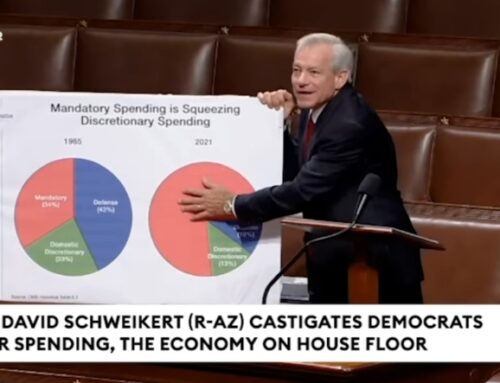It’s December. One election down, but a lot of work and a watershed election coming. So the question is: what are we, collectively and individually, going to do? Actually do. Have you thought about how much time you will devote to specific tasks, and how you will measure results? I have not. The other day I saw a comment that, during the Revolution, the Colonists were outnumbered 2:1, and took way more casualties. What motivated the average farmer or Bostonite to run that gauntlet? Can I just complain, work only to my level of inconvenience, and achieve as much? Time is short. Below are some things to consider, as you gear up and make your list. I have just returned from a few weeks in the Middle East, was reading some things to catch up, from the Wall Street Journal and the Financial Times from 11/22, and I noticed:
The EU will go through a prolonged period of readjustment as it becomes clear that Utopia is unreachable. Some context: the total EU debt is $28T. That’s a “no way home from here” number. Ireland’s debt is 13 times GDP, $500K/person. Decades to resolve. And remember, the numbers you see do not include derivatives, which are hidden, but in a meltdown (think AIG) they will hit you by a factor of 5 or 10. It’s complicated. But we will not escape; we live in a globally connected economic world. Do you believe that your elected leaders are up for this? Or even care? How can we make them speak to the issues? The Colonists met, face to face with no middlemen spinmeisters, in the Old South Church. We need that now.
Now, I don’t mind someone snookering me fair and square, but this toying with me like I’m a 4-year old has to stop! The Obamacare discussion gives me no respect! First, never do your elected leaders ever mention the role of individual responsibility in healthcare. Nowhere are costs, services and personal decisions ever related. Your leaders don’t even mention the horrific costs if we triple the rate of diabetes. Second, they scam you on the facts. The Doc Con, the Medicare doctor payment charade that has been around since 1997 (the Rs helped set it up), has gone to a new level. The AMA was duped, the $250B cost has been hidden, and the skilled ones are making sure the voters will blame Republicans next year. Last week Alice Rivlin (!) endorsed Paul Ryan’s (WI) Medicare reform plan. If we are to take this dragon by the tail, the time is now. What, exactly, should be done?
Did you know we have an annual lottery that allows 50,000 people from anywhere to enter the US and be fast tracked to legal? Does your Senator know? Does he support it? This year 15 million people have applied. Visas by luck. Are bin Laden’s people coming? I’m sure they know more about it than you do. And there are costs to administer it. Rep. Goodlatte (VA) is opposed to this; how can you get involved and impact our Senators?
Rep. Dave Camp (MI) will take over Ways and Means, and be instrumental in rewriting the tax code to focus on deficit reduction (to avoid the EU problem), trade, and repealing healthcare. To the extent that these cannot be truly accomplished, they must be presented in a way that allows us to be successful in 2012. What can we do to make sure we don’t fail?
You heard your leaders say they want to raise taxes to lower the deficit. You heard Warren Buffet, as his grip on the bar of reason weakens, say the same. But you did not hear that objective academic studies covering 60 years show that tax money is never applied to deficits; it is, as Milton Friedman predicted, always spent to keep the sheeple happy. Recently, Stephan Moore (WSJ) and Richard Vedder (U. of Ohio) updated the research and found that every dollar of new taxes results in an average increase in spending of $1.17, sometimes $1.81. Erskine Bowles, Obama’s leader on deficit reduction, says that each new tax dollar will reduce the deficit by 300%. He thinks you know nothing. Your elected leaders say nothing. They don’t think you matter. What can we do to make them engage us in an honest dialog? Else we will follow the EU over the cliff. Note this reality: the only era in modern times when the budget was balanced was the late 1990’s. Republicans controlled Congress, taxes were not raised, the cap gains tax was cut in 1997, government spending was dramatically reduced, and the economy roared.
In early 2011 there will be a vote to increase the debt ceiling. The co-chair of Obama’s deficit commission said the fight will “be brutal. There will be hair and eyeballs all over the floor.” What do we want to achieve here, and how do we do it, without repeating Newt’s mistakes? Boehner is important — is he beyond our reach? Cantor is important, but he’s been a spender and can be aloof. Tim Scott (SC) is on our side, as is Ribble (WI), Typton (CO) and Johnson (OH). Ideas?
Think Medicaid is just a simple program targeted for the poor? Don’t play catch with Randy Johnson. Bureaucracies are capable of morphing into Harry Potter’s worst nightmare. How do you explain there are 62 million in the program, 20% of us? A big reason is nursing homes (and you ain’t seen nothing yet). Offload the assets and apply. What difference can it really make? Do you know of any government bureaucracy that can manage that scenario? Neither does WA, TX, SC, NV, WY, or IN so they are looking at alternatives. They believe it can be done better for less despite the 57% federal rebate. Clearly a tough one, but how can we plug into this dialog so that this 45-year old failed program can be revamped before it, and its two siblings, consume us?
Did you know that Lisa Jackson, EPA, is abusing her power to push ahead with cap and trade despite the refusal of Congress to approve that? They well know that the regulators will do what they won’t. She is forcing the electrical industry into major capital expenditures to change direction, shutting down 33% of the coal-fired fleet by 2016 at a cost of $100B, to be paid by, well, you. The data shows that sulfur dioxide emissions have fallen by 56%, despite a 70% increase in the use of fossil fuels. But the zealots are not affected by data. Nor by lawsuits from five states, nor by the 56 Senators who oppose her. Nor by you? Or, is there something we can do?
Heard of BABs? Build America Bonds. In 2008 the muni bond market quaked. The perfect storm: declining revenue, no change in spending, investors and insurers shied away, state and local governments can’t borrow. The Feds established a temporary (?) program to subsidize higher rates. The states used it, surprise, not to restructure, but to maintain the old normal and to buy new stuff. Now, like a teenager with a personal drug dealer, they want it made permanent. Northwestern University’s Joshua Rauh notes several issues, but one is unfunded pension liabilities, which Rauh says are $3T for the 50 states. In June, IL was rated more likely to fail than Iraq. One result will be that the government will be sponging up big money in order to support subsidized activities so that money will not be available to private business. The pols don’t care; do you?
So, where are we? Voting for change is good, but easy. Achieving change is hard, requires time and commitment. The farmers and the Bostonites were up to it. Kind of exhilarating when you think about it. Are we? What are our ideas, who are our leaders, and what are we willing to do? Everyday.
?





